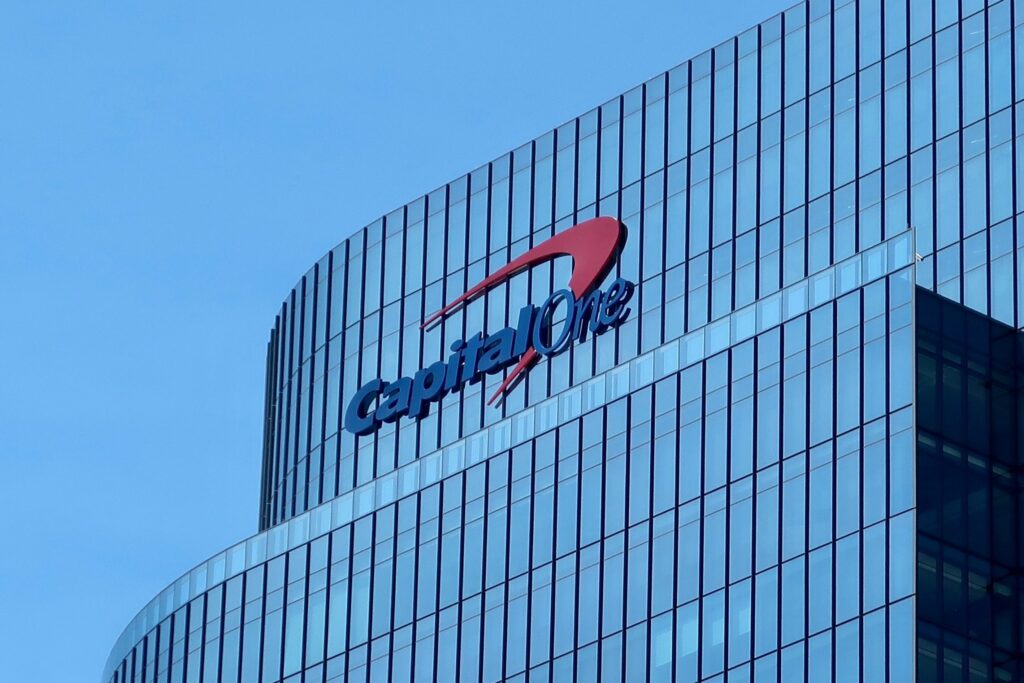The Financial Crimes Enforcement Network (FinCEN) fined Capital One $390 million for admitted shortcomings in the holding company's anti-money-laundering program.
According to FinCEN, from 2008 through 2014, Capital One allowed millions of dollars in dubious transactions to go unreported.
Capital One Credited $100M Paid For Negligence
The United States Treasury Department's financial crimes unit is crediting the firm $100 million paid to the Office of the Comptroller of the Currency (a few years back) in a related settlement concerning Capital One's check-cashing business unit.
As part of its settlement on what authorities called "willful and negligent violations of the Bank Secrecy Act," the holding company admitted its failure to maintain an effective AML program and appropriately file suspicious activity and currency transactions reports throughout 2008 and until 2014.
Capital One Ignored its Obligations
FinCEN explained that these omissions allowed transactions involving funds from organized crime, tax evasion, fraud, and other financial crimes to be laundered through the firm and into the country's financial system.
Kenneth A. Blanco, FinCEN director, qualified the failures outlined in this enforcement action as outrageous — adding that Capital One knowingly ignored its lawful obligations in a high-risk business unit.
Authorities Found Capital One’s Processes for Reporting Suspicious Transactions Faulty
The case involved a network of commercial check cashers in the New York and New Jersey area that ceased in 2014, along with various regulatory investigations connected to the company's clients.
Authorities stated that Capital One knew about the many compliance and money laundering risks associated with the new business unit before it was even established. According to reports, different regulators warned the firm and various criminal charges against specific check-cashing customers, which categorized many of these customers in the firm's top 100 highest-risk clients for money laundering.
FinCEN added that even as Capital One detected and reported suspicious activity by a few check-cashing customers, it failed to do the same for the check cashers themselves.
The bank apparently failed to file nearly 50,000 currency transaction reports tied to more than $16 billion in check-cashing transactions.
Mr. Blanco expressed FinCEN's discontent by saying that Capital One’s egregious failures allowed criminals to abuse our nation's financial system by fostering criminal activity.
Since the announcement, FinCEN remarked that Capital One has exited the cash-checking business and taken remedial efforts by making significant improvements to its AML program.
Speak with a Securities Fraud Attorney
Our AV-rated* securities fraud lawyers have extensive experience litigating a broad range of cases including stockbroker and brokerage misconduct. If you are looking for a securities fraud attorney to review your case, the securities fraud lawyers at Dimond Kaplan & Rothstein, P.A. have a proven track record of getting results for clients.
Contact Dimond Kaplan & Rothstein Today
Contact a securities fraud attorney at Dimond Kaplan & Rothstein, P.A to schedule an appointment for a FREE case evaluation and speak with a leading expert in the field about your rights and options.
Our offices are located in Los Angeles, New York, Detroit, West Palm Beach, Naples, and Miami, and we represent clients nationwide. Translation services are available.



